FOMO, aka fear of missing out, has been around forever but it feels more acute the more connected our world becomes. Technology and social media have eradicated barriers to communicating so that we're all up on each other's business, knowing what everyone is doing, what advertising they're using, how many books they're selling. But is that sometimes as disheartening as it is helpful? In this extract from ALLi's guidebook Creative Self-Publishing, Director Orna Ross reminds us that the way to win in this industry is to follow a creative self-publishing approach: to be uniquely you.
What is creative self-publishing?
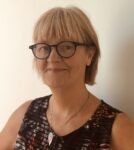
ALLi Director Orna Ross
Creative self-publishing is when indie authors approach their publishing tasks with the same creative mindset that we bring to our writing. Creative self-publishing encompasses not just what we do, but how we do it, across the seven stages of the publishing process.
Last week I had a conversation with an author about her book marketing, which is often where authors drop the creative ball. She was fed up with what she called “all the Amazon ads nonsense”.
Like so many other people, my sales have taken a dive the last few months and my page reads have tumbled. And I feel crosser and crosser about Amazon's cavalier attitude… I am tending to think that the best thing I can do is to spend more time writing – it's been too many months since my last novel came out. And I want to gravitate more to local centers which have their own artistic communities, and which I feel more at home in. But I don't know if this is me just saying what I want to believe?
I didn't think so. From my perspective, it looked like somebody taking the first steps towards becoming a more consciously creative publisher.
Not long into the conversation, the author had decided she wanted to integrate more fully into her business two things she already knew: that an Amazon ad is only one way to reach readers; and that it's not the right way for her right now.
With that out of the way, she was soon firing with ideas that excited and delighted her. Ideas she'd already had and actions she'd already been doing, but without integrating them into a coherent, marketing and money-based plan: building relationships with local media, bookstores and markets; seeking more local radio and speaking opportunities, consciously applying the unique selling points of her books into her book promotion.
She is now working on a plan that will integrate her marketing with the socializing and service of other people that come naturally to her, that she thoroughly enjoys, and for which she is already renowned in her local area, and globally in the author community. And she's promised to come back and share publicly with us how she gets on, once she's put it all in place.
This is the kind of conversation I often have with indie authors. Most of us understand that we have to be unique, self-directed and creative in our writing but when it comes to marketing, bookselling and the business side of our work, we get all conventional.
We don't trust our inspirations and intuitions, we listen to received wisdom, assume others have more expertise than us, do what somebody else tells us what we should do. We throw our creative power out the window and then wonder why our marketing and bookselling is not working or why we're not enjoying our creative business.
Creative Self-Publishing: Advice
There's no shortage of advice, these days, on how to succeed as an indie author.
You have to blog. Ooops, wait a minute. Actually, blogs don't work anymore.
You can't sell books if you're not on social media. No sorry, social is so-o-o-o over. Readers are sick of authors screaming “buy my book”.
You must write genre fiction to sell big. You have to publish a series, or you're wasting your time. You must do rapid release or expect to fail. You have to give away free books, or nobody will ever find you. You have to podcast, or do video, or do ads…
Ever since Amazon KDP first arrived on the scene authors have discovered some neat tricks and tools to and shared them around. It's given us real competitive advantage but our community is now flooded with poor advice.
Some of it arises from measure publishing through commercial metrics only. We're looking for the shortcut, the trick, the hack. Who can blame us? Writing and publishing are hard. Hugely challenging, as anything hugely rewarding always is.
But commercial metrics alone make no sense in the creative industries and publishing is no exception. And creative skills take time to build to the level of being commercially rewarded. Talk to any public “overnight” success and they'll tell you about the years of unseen effort and consistent, intentional learning and work.
Sure, tricks and hacks can work for a while, can give you a nice boost, but only when embedded within a sustainable business model. And for a creative sustainable means creative as well as commercial.
Another cause of confusion is the service providers in our industry, particularly the marketing services who are skilled marketers themselves, playing up how much all authors need whatever it is they are offering, and knowing just the tricks and hacks that will get us buying.
We, again not sure enough of our business model and marketing plan, and perhaps without even having the time to implement the advice, pay up only to be disappointed. Again.
A third problem is authors who generalize from the particular. Sincerely trying to be helpful, they wrongly assume what has worked for them will work for you.
All in all, and, if you don't have deep creative roots, you can easily be swayed this way, then that, by the promise of more sales.Before you know it, you're in a constant state of swerve.
Creative Self-Publishing: Explore and Experiment
How to put down these deep creative roots is through doing the necessary exploration and experimentation to know what's right for your business, your lifestyle and your creative process.
You test a marketing or business intention first in the imagination, to see how it feels. Then in real life with a blueprint, a draft effort that you will later deepen and clarify.
Exactly the same process as when you write a book.
Instead of jumping on the latest great thing as something that's going to solve all problems, you approach it in a spirit of enquiry and learning, of trying and testing, keeping what works, moving quickly on from what doesn't.
It may look the same from the outside but it feels utterly different from inside.
Creative Self-Publishing: Your Value to Readers
Creative self-publishing means drilling down into yourself, not just for your writing, but for your marketing, and for the shaping and positioning of your author business. Why should a reader buy your book(s)? Why should somebody share your social media posts? Why should anyone care?
The key to understanding that, and presenting your book in a way that makes them care, is getting a better understanding of why you care yourself. Ask yourself questions like:
- If I were to write the last book (or blog post) I'm ever going to create, what would it say?
- Why do I share the content I share?
- If I were to make the best book ever, what would it say?
The answers will be connected to your early years, your upbringing, your birth family, the place you grew up.
Once you have clarity, allow your findings to seep into your platform, your positioning in the marketplace, your book and website design, your promotions, your business structures and the conversations a successful indie author must have with everyone from rights buyers, to editorial and design teams, to virtual assistants.
Now you are creatively and commercially aligned, with a business that is as uniquely-you as your books. Your unique and aligned message will soon start to attract those who most need to hear it.
They will share. Word will spread.
This is the way it happens for most successful indie authors. Yes, there are the outliers who get lucky with some hack, or from being first in the latest game, but for most–for almost all of us–true publishing prowess is like true writing prowess: it takes time.
Creative Self-Publishing: Turning Down Opportunities
There is no shortage of opportunities for indie authors, these days. We've gone from a closed system in which there were very few opportunities to an abundant system where the challenge is selecting what's right for you and saying no to the rest.
Linda Gillard is a six-figure-selling UK novelist who says she broke all the indie rules when she started out. She didn't blog or tweet, write a series or have a free-book strategy, but she sold 10,000 downloads in her first four months of publishing and won a coveted Amazon “Top Ten Best”. More recently, she was commissioned by Lake Union, an Amazon Publishing imprint, to write two new novels.
When she delivered, two editors were unhappy. Linda was unhappy with how they wanted it re-written, and certain her readers wouldn't approve. Creative differences couldn't be resolved.
Close to mental and physical collapse after an agonizing fortnight of insomnia and creative despair, I decided to withdraw from my contract. I paid back my two advances. I don’t doubt the new departure would have found me thousands of new readers, but actually my old readers are more important to me than new readers. When I publish my new book HIDDEN next February it will be 100% me… a Linda Gillard book. My name is my brand.
You are at liberty to think me insane (or just a diva!), but I preferred to turn my back on life-changing money so I could continue to write my stories, my way… I am at heart an indie author and I will now always remain indie. I’ve learned my lesson.
Creative Self-Publishing: It's A Process
“It's too easy to get caught up in the mass hysteria about ads, etc and lose sight of what we're really all about,” says the author who'd decided to drop Amazon advertising. “One of my writing friends said ‘When all else fails, remind yourself who you are'. This really resonated with me. ”
Me too. I'd go further actually, by turning it around. Remind yourself who you are or all else will fail. You'll get the reads and the money, maybe, but you'll still be chasing, still feeling it isn't enough, still worrying about the latest shiny, new trick that you might be missing.
By contrast, if you only take in the shiny new tricks and tools and techniques when they align with your how and why, with your creative intentions and commercial imperatives, you're a success already.
This operates in terms of the big life decisions, but also day to day, when you read the latest success story. If you've aligned your creative and commercial intentions, if you're meeting your own definition of success and your own progress measures, if you love what you're doing, they can't touch you.
Find what you're good at, what you're probably already thinking about, what you're possibly already doing, but what you certainly know that you love. Channel that uniquely-you aspect that's already in your writing into your marketing and bookselling.
Drop what everyone else tells you you should be doing and go creative.
What is uniquely-you? How to be truly successful as an indie author @ornaross #selfpublishing #IARTG #ASMRG #amwriting #writingcommunity #writetip Click To Tweet
OVER TO YOU
Do you suffer from FOMO? Do you know what is uniquely-you? How are you embedding the uniquely-you parts of yourself into your marketing?
If you enjoyed this post, you might like these from the ALLi archive:

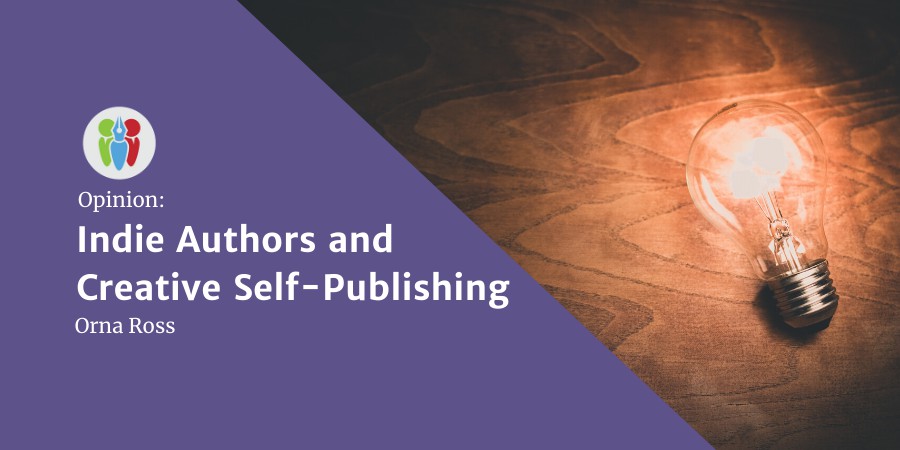

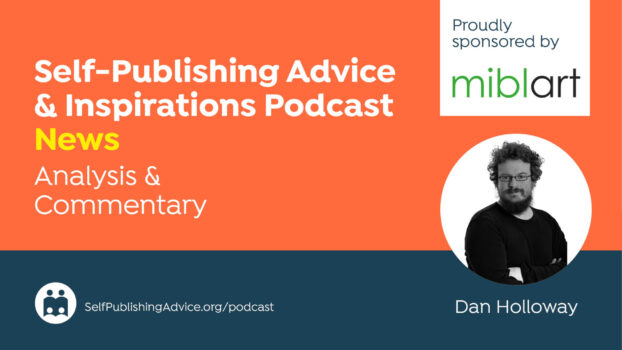
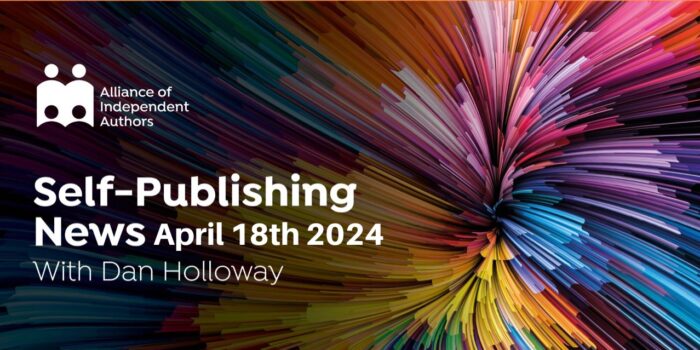
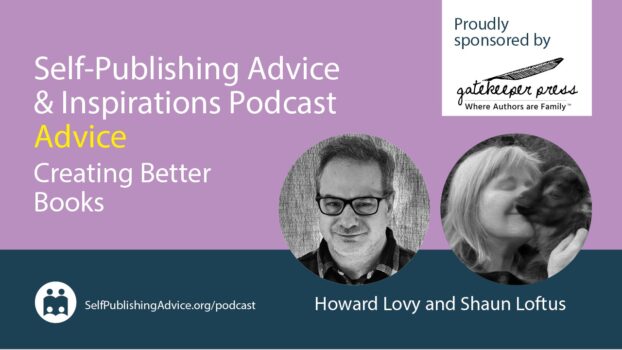
[…] Creative Self-Publishing Guidebook, by Orna A. Ross […]
[…] And it’s available for purchase in other formats and by non-members, in the ALLi bookstore. Go to selfpublishingadvice.org/creativebook. The print editions will launch in September. In the meantime, if you enjoyed the book, please give […]
[…] And it’s available for purchase in other formats and by non-members, in the ALLi bookstore. Go to selfpublishingadvice.org/creativebook. The print editions will launch in September. In the meantime, if you enjoyed the book, please give […]
[…] And it’s available for purchase in other formats and by non-members, in the ALLi bookstore. Go to selfpublishingadvice.org/creativebook. The print editions will launch in September. In the meantime, if you enjoyed the book, please give […]
[…] And it’s available for purchase in other formats and by non-members, in the ALLi bookstore. Go to selfpublishingadvice.org/creativebook. The print editions will launch in September. In the meantime, if you enjoyed the book, please give […]
[…] To me, the most important aspect of creating a platform, is deciding the values that drive it. Having come from a corporate background, I knew I didn’t want to be restricted anymore. I wanted writing to be a beacon of my truest self and that’s what I’ve tried to do on every aspect of my platform. I think Orna Ross sums it up perfectly in a post she wrote on creative self-publishing. […]
[…] options for marketing their books. Alliance of Independent Authors Director Orna Ross, wrote an inspirational post recently where she advocated finding what’s uniquely-you and then using that understanding of your […]
[…] Indie Authors and Creative Self-Publishing […]
[…] Indie Authors and Creative Self-Publishing […]
[…] Indie Authors and Creative Self-Publishing […]
[…] Don’t try to be like everyone else. Be uniquely you. […]
Good advice. The theme of the article reminds me of a quote from Shakespeare: “To thine own self be true.” I’ve recently re-calibrated my own marketing strategy and realized that creative control and ‘right-sizing’ my marketing efforts make for a more enjoyable journey for me. No more chasing the Mighty ‘Zon for me!
I needed to read something like this now. Thanks for posting it.
Thank you for this blog, I loved it! It really resonated with my own thinking of late.